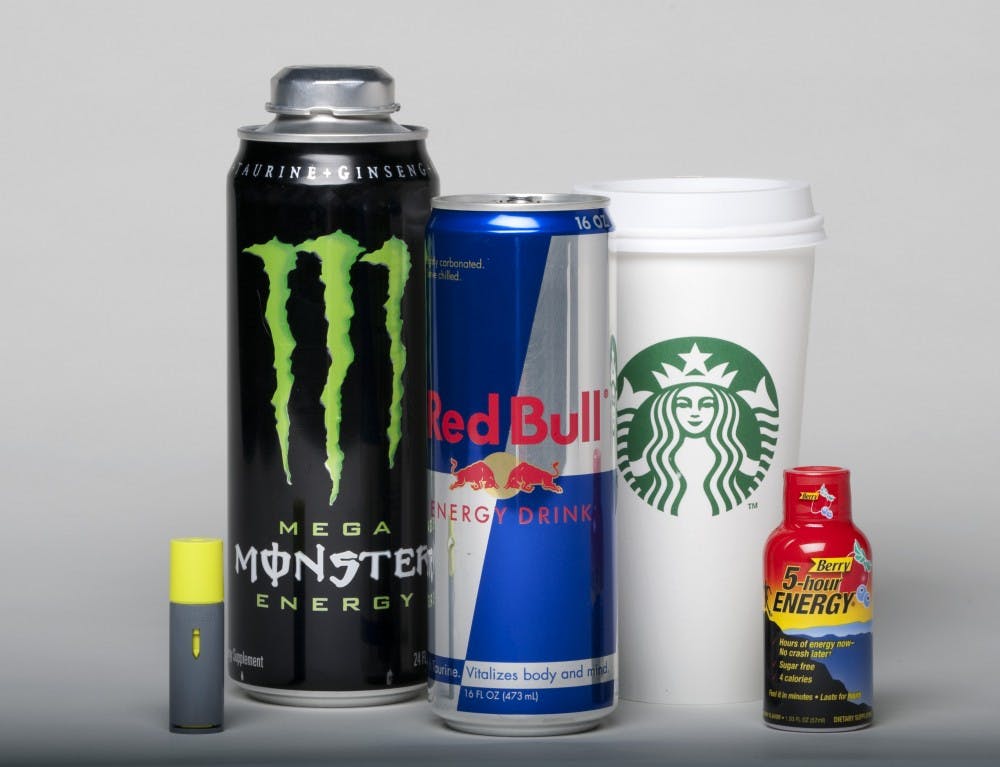How much is too much?
400 milligrams of caffeine per day is a safe amount for most healthy adults, according to the Mayo Clinic. But how much caffeine is that?
- Four cups of brewed coffee
- 10 cans of soda
- Two "energy shot" drinks
On a typical day, Brad Gonzalez, a freshman radio broadcasting major, downs a RedBull in the morning, a RockStar in the afternoon and a Mountain Dew during dinner.
“There are times when I can’t sleep,” Gonzalez said. “This is probably bad for me, but it’s a habit now.”
It might seem obvious: caffeine makes it harder to fall asleep. But a recent study published earlier this month found late-night caffeine consumption resets the circadian clock, or the body’s internal sense of time.
This effect had not yet been observed in humans — just bread mold, green algae and sea snails, said Kenneth Wright in an interview with NPR. Wright, a professor at the University of Colorado, co-authored the study.
The study found that a double-espresso dose of caffeine shifted the body’s internal clock by 40 minutes.
Sleep can affect academic performance, mood and risk-taking behaviors, according to healthypeople.gov. One-third of young adults reported experiencing insufficient sleep — less than seven or eight hours — in 2011.
These young adults are also heavy caffeine consumers as well.
Fifty-six percent of people aged 18-43 drank one glass of soda every day, according to a 2012 Gallup poll. Coffee consumption also increased in adults aged 18-24, with 39 percent of people reporting that they drank some within a two-week period, according to a 2012 survey from the NPD group.
Emily Cox, a freshman journalism major, said she’s observed bad caffeine habits in her peers.
“I see people in my classes have coffee every day,” she said.
Cutting down on caffeine can cause withdrawal symptoms, including headaches, temporary depression and irritability, according to KidsHealth. But this isn’t stopping some students from kicking the caffeine habit.
Cox avoids it because she said the drinks that contain caffeine aren’t very healthy.
Freshman Braidon Nutting hasn’t consumed straight caffeine since childhood.
“I have enough energy to power a city, so one can imagine that when I first had a straight coffee at 11 years old, it was slightly detrimental," he said. "I remember sitting in a chair at the barbershop aggressively shaking my leg up and down. It was not fun.”
Caffeine isn’t all bad, however. It’s found in over 60 plants and is fine in moderate amounts — about three eight-ounce cups of coffee a day — according to the National Sleep Foundation.





